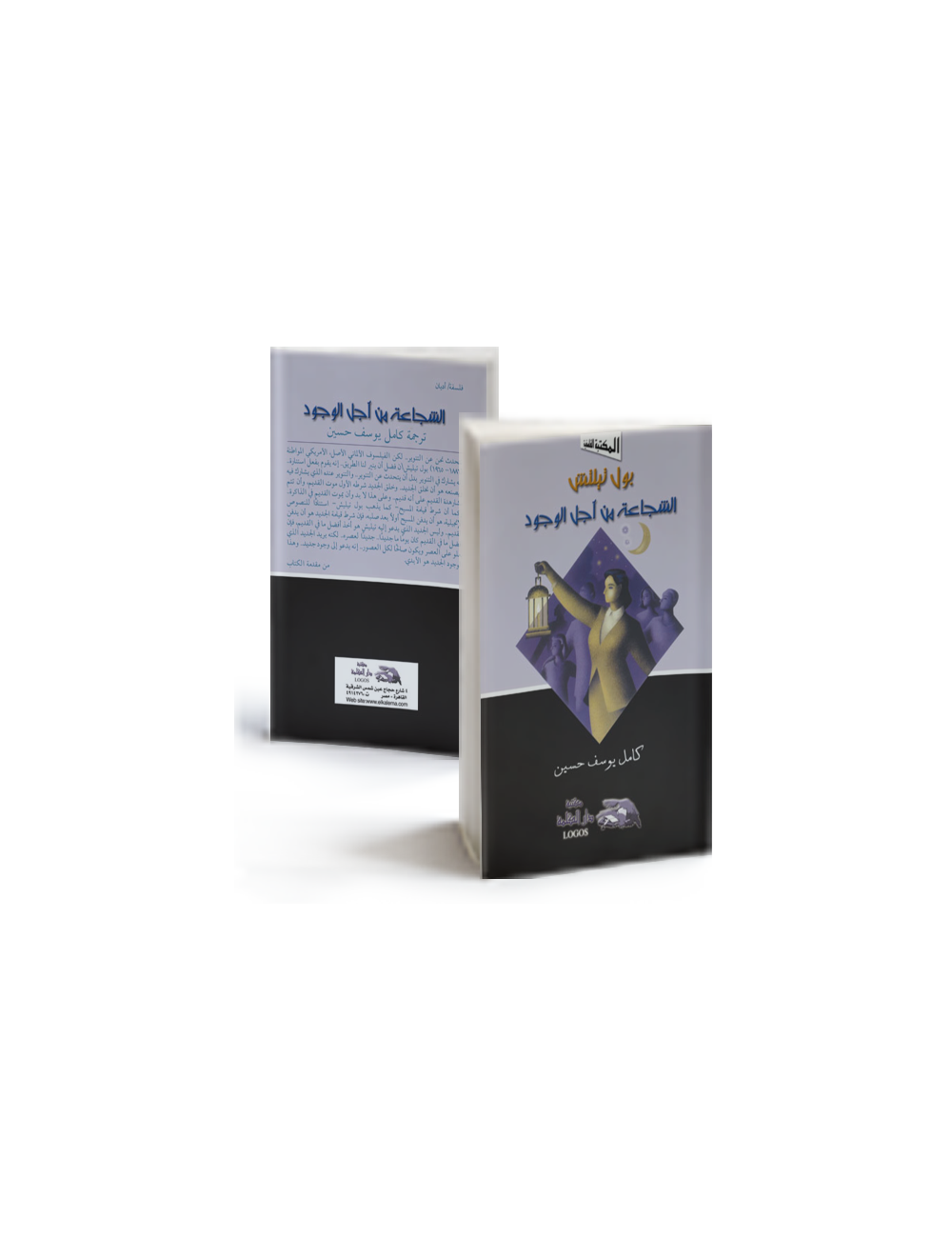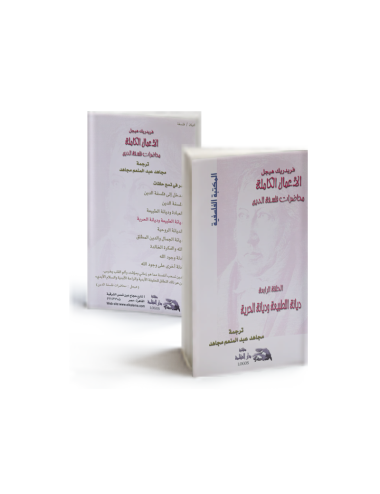
The Aesthetics of Arts and Creativity
Psychology of Aesthetics, Creativity, and the Arts is devoted to promoting scholarship on the psychology of the production and appreciation of the arts and all aspects of creative endeavor.

(E£110.00 1.000000)
Paul Tillich was a German theologian and philosopher who moved to the United States after having to flee from Nazis in the 1930s. He became a lecturer at Yale University in Connecticut
Security policy
Delivery policy
Terms And Conditions
Tillich expanded his lectures into the book The Courage to Be. In the book, Tillich incorporates early philosophies of Socrates, Aquinas, and Nietzsche into his own philosophies about courage. Tillich believes that "courage is directly tied to being, or a self-affirmation of one's being."
In order to explain how courage is connected to personal being, Tillich also explains the concept of "nonbeing." When a person does not believe in their personal being, this results in anxiety. Tillich states that this anxiety has three forms: anxiety related to fate and death, anxiety related to emptiness and meaninglessness, and anxiety related to guilt.
Product |
 The Courage To Be
The Courage To Be
|
 Philosophy does not wear a feminine outfit
Philosophy does not wear a feminine outfit
|

Sale!
Lectures on the philosophy of religion: The Religion of Nature and the Religion of Freedom
|
 Dynamics of Faith
Dynamics of Faith
|
Availability |
In stock
|
|
in stock
|
In Stock
|
Price |
E£110.00
|
E£110.00
|
E£110.00
|
E£110.00
|
Description |
Paul Tillich was a German theologian and philosopher who moved to the United States after having to flee from Nazis in the 1930s. He became a lecturer at Yale University in Connecticut |
“A man is not born a woman, a man (becomes) a woman” (4: 156) |
One of the greatest books ever written on the subject, Dynamics of Faithis a primer in the philosophy of religion. Paul Tillich, a leading theologian of the twentieth century, explores the idea of faith in all its dimensions, while defining the concept in the process. This graceful and accessible volume contains a new introduction by Marion Pauck, Tillich's biographer. |
|
ISBN |
977-6010-52-0 | 978-977-384-278-2 | 977-6010-65-2 | 977-384-156-1 |
Author |
Paul Tillich | Mejahed Abdelmeaim mejahed | Georg Wilhelm Friedrich Hegel | Paul Tillich |
Translator |
Mejahed Abdelmeaim mejahed | Mejahed Abdelmeaim mejahed | Mejahed Abdelmeaim mejahed | |
Editor |
Mohamed H. A. Ghoneam | |||
Original Language |
English | Arabic | English | English |
Language |
Arabic (Translated) | Arabic (Translated) | Arabic (Translated) | |
Format |
Paperback | Paperback | Paperback | Paperback |
Publishing House |
Maktabet Dar El Kalema Publishing House | Maktabet Dar El Kalema Publishing House | Maktabet Dar El Kalema Publishing House | Maktabet Dar El Kalema Publishing House |
Number of Pages |
180 | 116 | 162 | 176 |
Product Dimensions |
20×13.5×.5 | 21.5×12.3×0.5 | 20.3×14×0.8 | 20×12.4×1.2 |
Product Weight |
158 gm | 130 gm | 158 gm | 152 gm |
|
|
|
|
|
Psychology of Aesthetics, Creativity, and the Arts is devoted to promoting scholarship on the psychology of the production and appreciation of the arts and all aspects of creative endeavor.
There is a common theme linking these studies this topic comes from the depth and diversity and richness of human nature from the side, and the other side also stems from humans and worthlessness in this nature.
In this book by Rollo May discusses some of the characteristics of human nature and human under the title of "problematic".
Did Marcel’s philosophy of secrets achieve a push to the thought? People tend to hide secrets: his origins, his destiny, his existence, he is a collection of secrets. And above of all secrets, the secret of the existence or – according to Marcel - the ontology secret. Its different from the secrets of faith, or theology secrets.
This comprehensive exploration of the interpretive process,
has served as a successful textbook. It focuses on the three "worlds" of biblical interpretation--the world of the author, the world of the text, and the world of the reader--to help students develop an integrated hermeneutical strategy. The book offers clear explanations of interpretive approaches, which are supported by helpful biblical examples, and succinct synopses of various interpretive methods. Pedagogical aids include end-of-chapter review and study sections with key terms, study questions, and suggestions for further reading.
This book is a cry of protest against those who rejoice at the death of ideas and doctrines and declare in a foolish trance that existentialism is dead
Philosophy, metaphysics, or ontology is nothing but a constant attempt by man to rationally adjust his life path so that he returns to walking on the bound path guiding in this the mind unity
This was a very pastoral, insightful book on the emotional/psychological factors that can leave a person wrestling with deep doubt regarding the truth of Christianity - either those who do not call themselves a Christian but would like to believe, or those who do consider themselves a Christian but experience deep distrust and disbelief at times.
The subject of fiction has received clear interest from many philosophers, both idealists and empiricists. We will depart from the subject of our studies if we try to follow the opinions of modern philosophers in this regard
Suren Kerkegor in Copenhagen on May 5, 1813, both of his father and mother descended from the Jute family, a Germanic tribe that invaded the European continent in the fifth century.
Works of Love is, perhaps, the greatest single piece of literature written in the history of humankind. Astonishingly, it has been greatly ignored by philosophers, laymen, and theologians alike. Unlike its predecessors Works of Love has largely remained unknown in the Western world. In an attempt to introduce my parents to this masterpiece, I discovered that the Russians had not even bothered to produce a translation to this very day! Reading recent reviews written by modern readers—a bare dozen or so—I recognized in their writings precisely how I felt about the book: mesmerized and changed. Most reviewers were both disturbed by the fact that such a life-altering book could have been given a cold shoulder, lasting a swiftly-approaching two centuries.
The separation of religion from the subject manifests itself in the emergence of an actual will. In the will I am an actual and free being, and I present myself against the subject as another, in order to represent it with myself by removing it from that state of separation.
The book deals with the historical roots of the idea of alienation according to Erich Fromm, and the various manifestations of the idea of alienation as it appears in the writings of modern and contemporary philosophers, especially those influenced by Fromm such as Hegel, Marx, Heidegger, Marcuse and others. It also deals with the different dimensions of man’s alienation from himself and from his world, according to Fromm, using a comparative analytical approach.
Why would you read about the history of Christian thought? If you are Christian yourself, it helps you to understand about thinkers and the faith of the generations.
The true "spiritual enthusiasm" is what we generally call "the church". This expresses this grouping, towards what has already been renewed.

Paul Tillich was a German theologian and philosopher who moved to the United States after having to flee from Nazis in the 1930s. He became a lecturer at Yale University in Connecticut

Product Comments